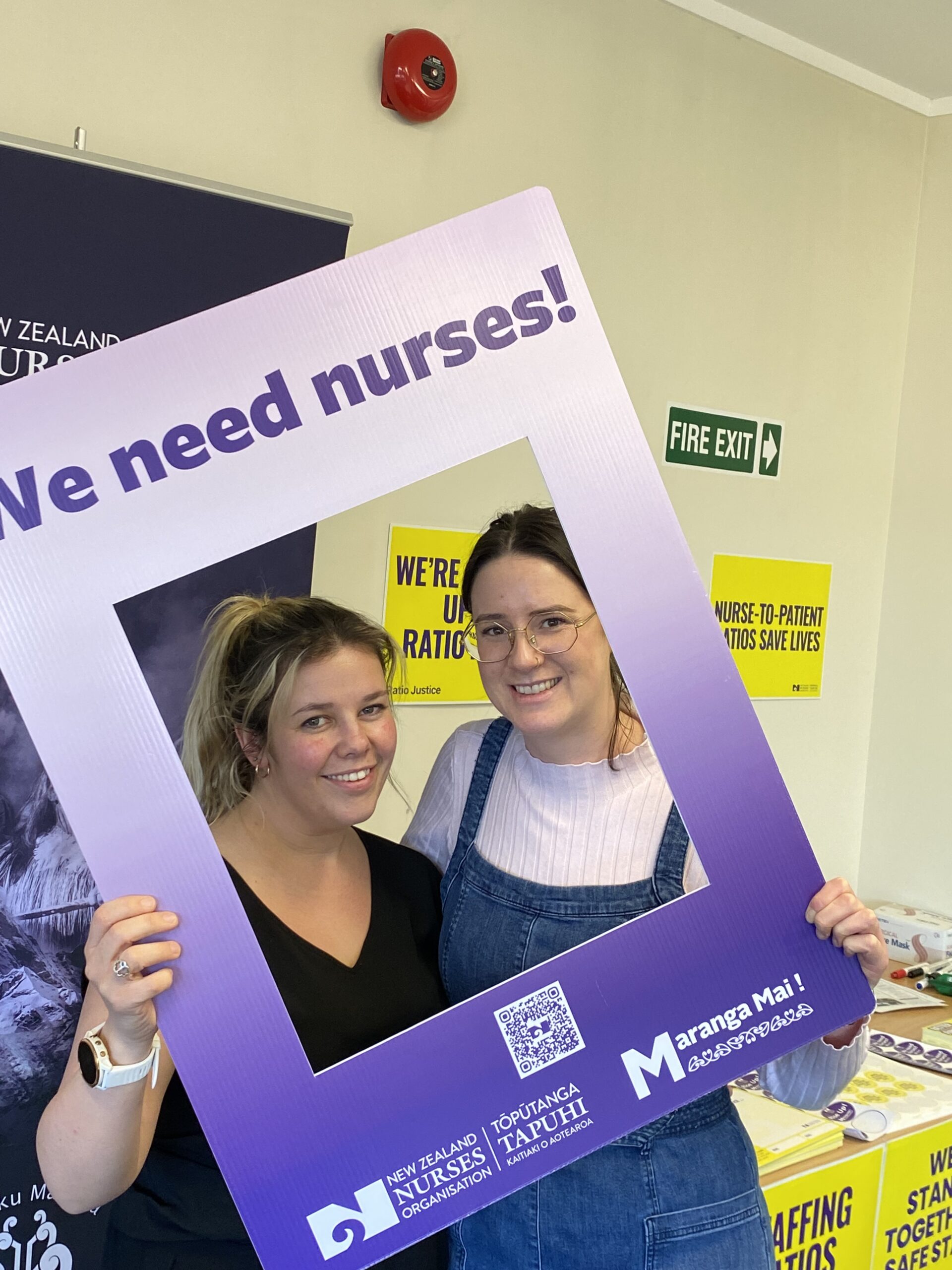Practice nurses, like GPs, are getting older and closer to retiring.
But it’s becoming ever more difficult to recruit younger nurses, with student loans and mortgages, at a time where the cost of living is so high. Primary health care’s base pay rate is so much lower than that of secondary care.
I dread to think what it will be like for me as a retired, elderly person in 20 years.
The only thing we can offer is better working hours, with no weekends or evenings (usually!). But with a lower base rate, that’s often too much of a pay reduction to make it worth coming into primary care.

So, we are fast losing staff to Te Whatu Ora or overseas, where they can get paid so much more.
Safe workloads, too, are starting to erode. Fewer nurses mean fewer job shares or locum nurses to cover illness or annual leave. The resulting burnout and increased stress from covering more appointments can make the work less enjoyable.
Our employers — with whom we are bargaining currently — seem reluctant to offer us a competitive pay rate, under a funding model that, over decades and many governments, has become far out-of-synch with patient demand.
Yet, well-funded primary health keeps people out of hospital. Meanwhile, people end up in emergency departments for non-urgent care because they can’t afford their GP fee or can’t even get enrolled or an appointment.
As New Zealand’s population surpasses 5 million, there is a lack of future-proofing across all areas of health. There is not enough financial support in training to allow the next generation of doctors, nurses, dentists, radiographers, occupational therapists, physiotherapists and lab technicians — everybody who is part of a professional team — to flourish.
I dread to think what it will be like for me as a retired, elderly person in 20 years!
It feels like a Jenga puzzle — all these little blocks of wood balancing precariously and ready to tip over at any moment
If this is where our current workforce is heading, then it’s no wonder we can’t keep on top of the basics.
Immunisation is a public health issue, it’s not just about personal protection. I’m from the United Kingdom and can remember getting polio drops in the mid-60s, when they became available. I had smallpox and tuberculosis vaccines in my childhood as these illnesses were still prevalent and potentially life-threatening.
It’s not lucky that diseases such as these are not seen nowadays — it’s only because of immunisation programmes.
Look at Auckland in 2019, during the global measles outbreak. We had whole high schools closed down because there were more unvaccinated than vaccinated kids. That meant there was not enough herd immunity to be able to safely come to school. And repeat, two years later, with COVID-19.
What are the consequences of such interruptions to the education process?
Closed borders during the COVID pandemic, too, diminished our ability to supplement the primary health workforce gaps, undermining the role of the GP and practice nurse in providing holistic care for the whole family.

Meanwhile, pharmacies are stepping into adult vaccinating, accessing subsidies that would previously have gone to primary health.
This is especially annoying when pharmacies give unnecessary vaccines then claim for them – vaccines that have already been given in general practice but are not recorded on the new Aotearoa immunisation register (which replaced the national immunisation register NIR in December 2023). Anyone born before 2004, when NIR started, won’t have their MMR (measles/mumps/rubella) vaccines, nor their early vaccines such as pertussis, tetanus and diphtheria, recorded except at their general practice.
I am aware of several cases where unnecessary vaccinations have been given – and a couple of pharmacies in Christchurch that have lost their vaccination licences as a result.
We in primary health are in a perfect storm, as a consequence of years of taking our nurses’ ethos of caring and going the extra mile for granted.
Each injection takes time — to get consent, to administer and to document — but an adult can be vaccinated so much faster than a six-week-old baby.
And now, Whānau Āwhina Plunket nurses have been tasked with giving childhood vaccinations in areas with low uptake. Why is the Government prepared to pay yet another provider to do this important service, instead of properly funding primary health care to do what they have been doing for decades?
Such moves undermine the role of the GP and practice nurse in providing holistic care for the whole family — and the effect is evident in the latest health target figures which show childhood immunisation rates are dropping.
This all comes amid a whooping cough epidemic. We do our best to keep on top of pregnancy and early childhood vaccinations but the chance of outbreaks — which are cyclical in nature — are always sitting there in the background. Being able to get a prompt GP or practice nurse appointment — very challenging these days — to diagnose the ailment would reduce the spread of this highly contagious disease.
We in primary health are in a perfect storm, as a consequence of years of taking our nurses’ ethos of caring and going the extra mile for granted. Meanwhile, underfunding across health and training continues, and a growing pay gap with our colleagues in secondary care plays havoc with our ability to recruit and retain nurses.
It feels like a Jenga puzzle — all these little blocks of wood balancing precariously and ready to tip over at any moment.
- Daana Watson is a member of the NZNO college of primary health care nurses.




